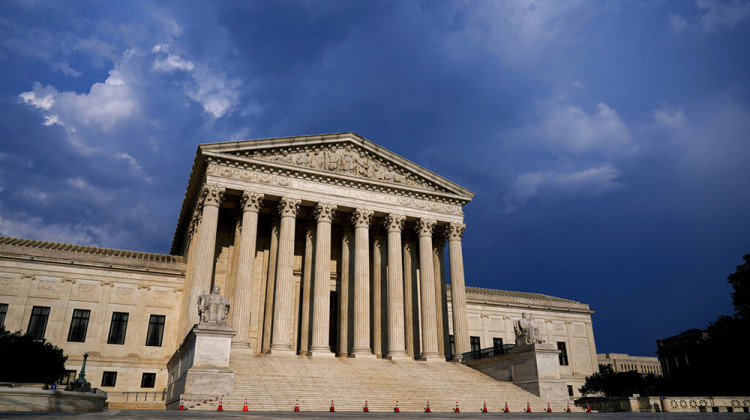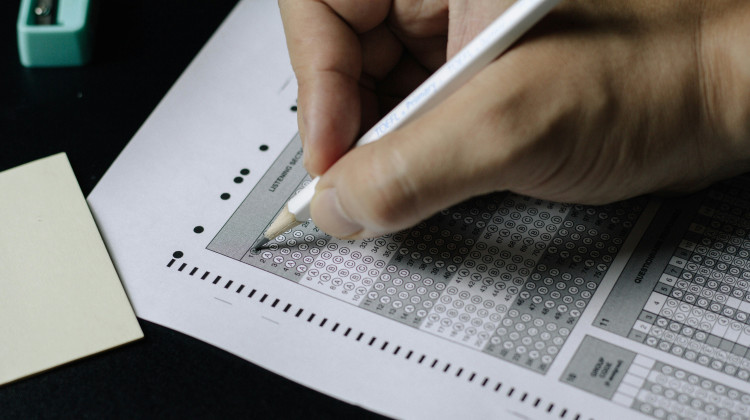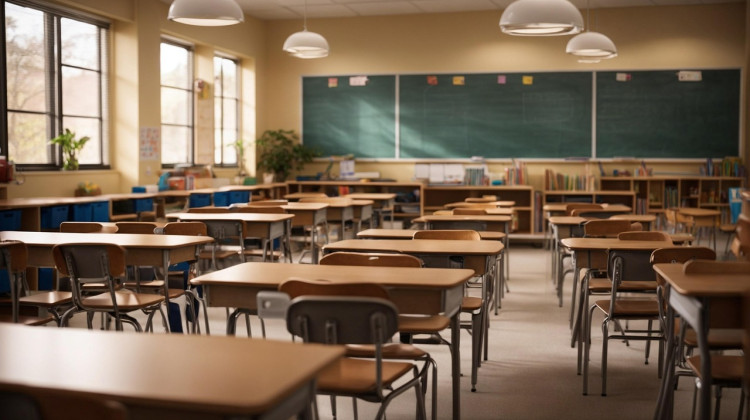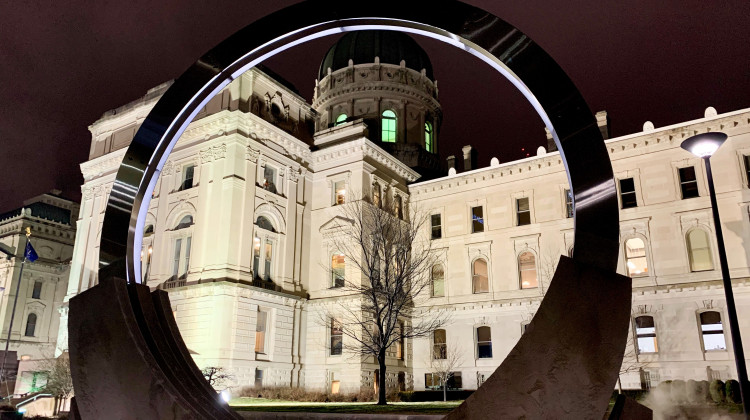
FILE - This May 26, 2021, file photo shows the Supreme Court in Washington.
AP Photo/J. Scott Applewhite, FileRALPH D. RUSSO - AP College Football Writer
A Supreme Court ruling that went against the NCAA could open the door to schools using unlimited benefits tied to education to recruit top athletes.
The NCAA’s loss in a 9-0 decision will not directly lead to play-for-pay in college athletics, but it did clear a path for future legal challenges that could be even more impactful.
Here's what to know:
The Case
The original lawsuit brought by former West Virginia running back Shawne Alston challenged the NCAA's right to cap compensation to Division I football and basketball players at the value of a scholarship.
The lower court's decision went against the NCAA. In a narrow ruling, a judge said the NCAA could not cap benefits to athletes that are tied directly to education. The court left it up to the NCAA to define educational benefits but the NCAA appealed and lost.
The case was the first involving the NCAA heard by the Supreme Court since 1984.
What Are The Benefits?
They are some of the costs associated with being a student, costs a school could pick up for an athlete. Examples include a study abroad program, a paid internship or an athlete's school computer.
What Does It Mean?
The ruling doesn't mandate that schools pay athletes. It only prevents the NCAA from standing in the way of educational benefits.
Schools and even conferences could impose their own rules or caps, but plaintiffs' lawyers believe teams competing against each other on the field will look for ways to gain an advantage through these benefits and recruits will capitalize on the market.
When Can Athletes Begin Taking Advantage?
Schools could start offering athletes in those high profile sports things like internships, laptops or even cash bonuses tied to academics or graduation effective immediately.
Still, it is more likely that conferences, schools and even the NCAA will take time to clarify the original ruling and come up with some guidelines and definitions about what is permitted. Overall value, though, cannot be capped.
The NCAA's Big Problem
The lower court's ruling itself is not the NCAA's biggest headache. The Supreme Court's decision also left the NCAA open to more legal challenges and stripped it of one of its best defenses.
Justice Neil Gorsuch wrote in the majority decision that the 1984 Board of Regents case, which went against the NCAA but also gave the association some cover against antitrust law, no longer need be adhered to by courts in future cases.
“It's certainly notable that there was unanimous opinion that Board of Regents does not support the NCAA's restrictions on athlete compensation," said Gabe Feldman, director of Tulane's sports law program. “That was the key argument in every case the NCAA had made (in court). Not only that Board of Regents supports it, but that Board of Regents means that all NCAA rules are essentially legal.
“That's the language they were hoping to get from the court. Instead they got that the language means nothing. Board of Regents provides no support.”
Feldman said unless the NCAA can get some type of antitrust exemption from Congress the lawsuits might never stop. The NCAA has already been asking for protection from Congress in the form of a federal law that would regulate the way athletes can be compensated for use of their names, images and likenesses.
“The silver lining for the NCAA — it's a faint silver lining — is that this theoretically strengthens their argument in Congress that if they don't get an antitrust exemption they're going to get sued into oblivion," Feldman said. "And it's only a matter of time before antitrust law destroys the NCAA's vision of amateurism."
Follow Ralph D. Russo on Twitter at @ralphDrussoAP and listen at https://APpodcasts.com
 DONATE
DONATE






 Support WFYI. We can't do it without you.
Support WFYI. We can't do it without you.